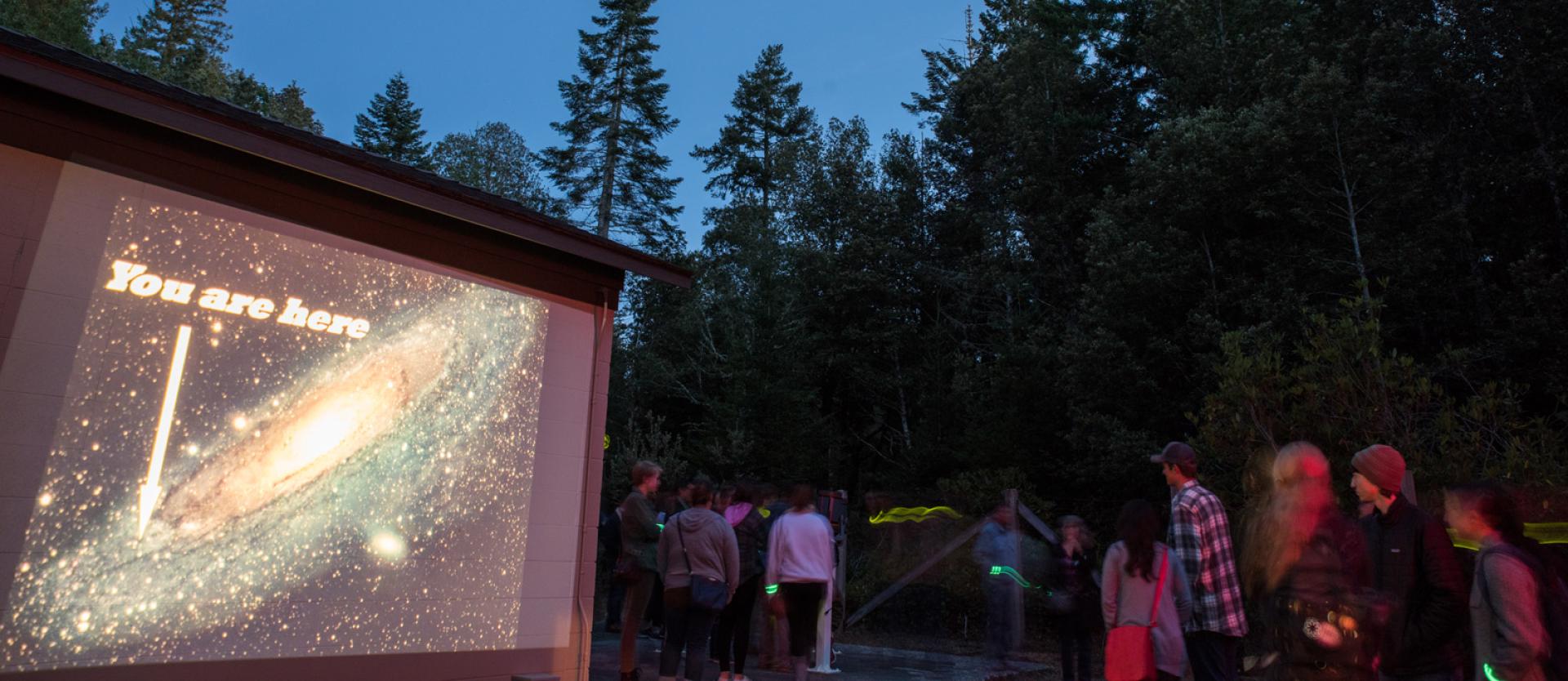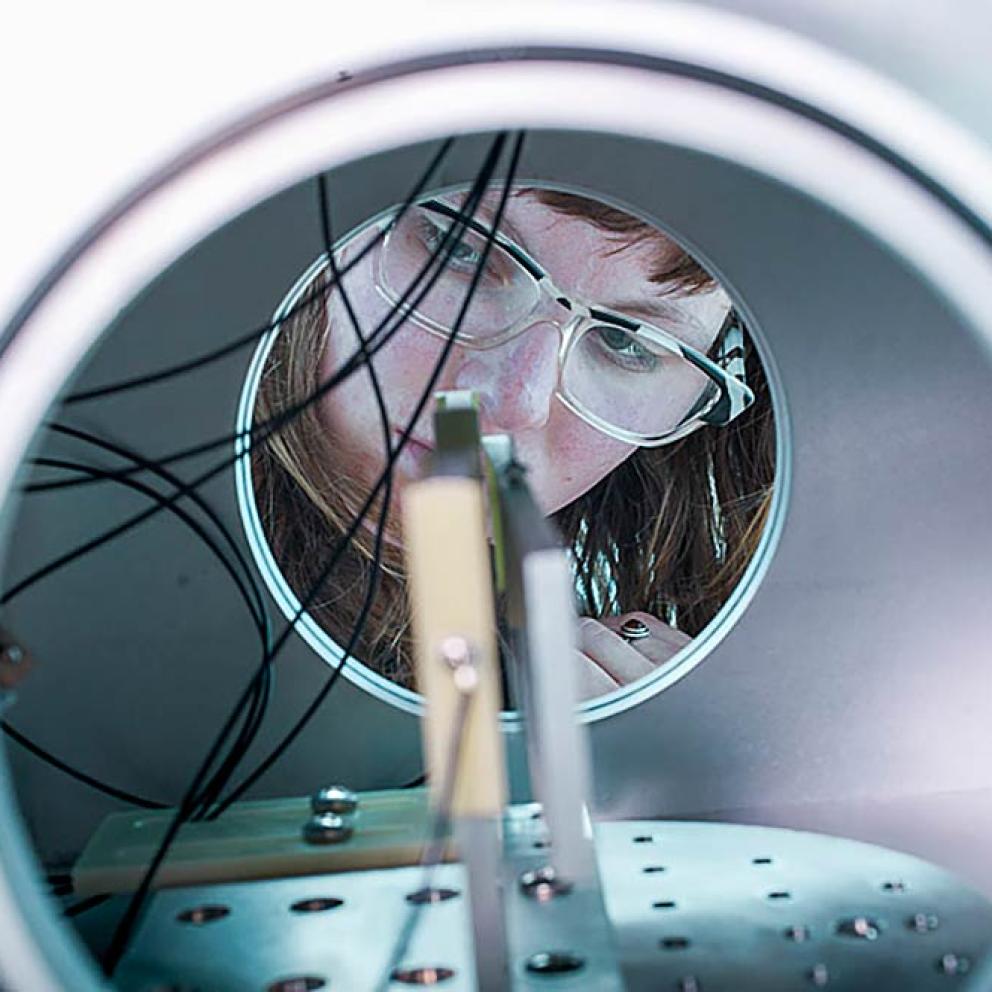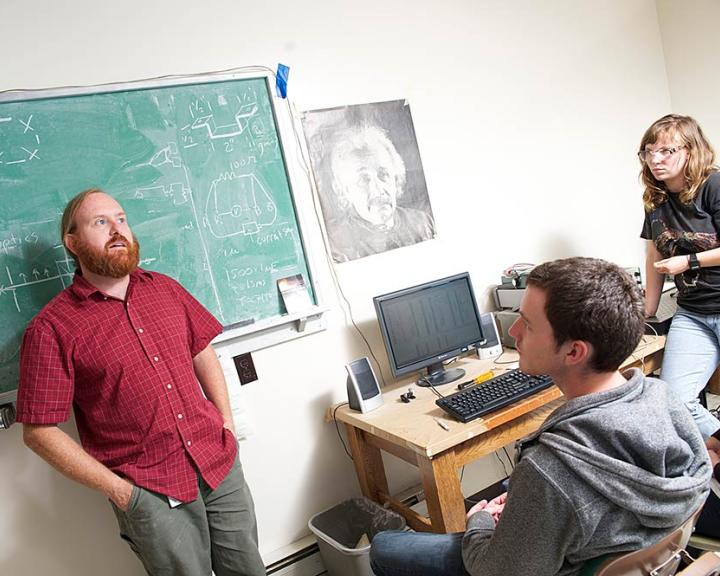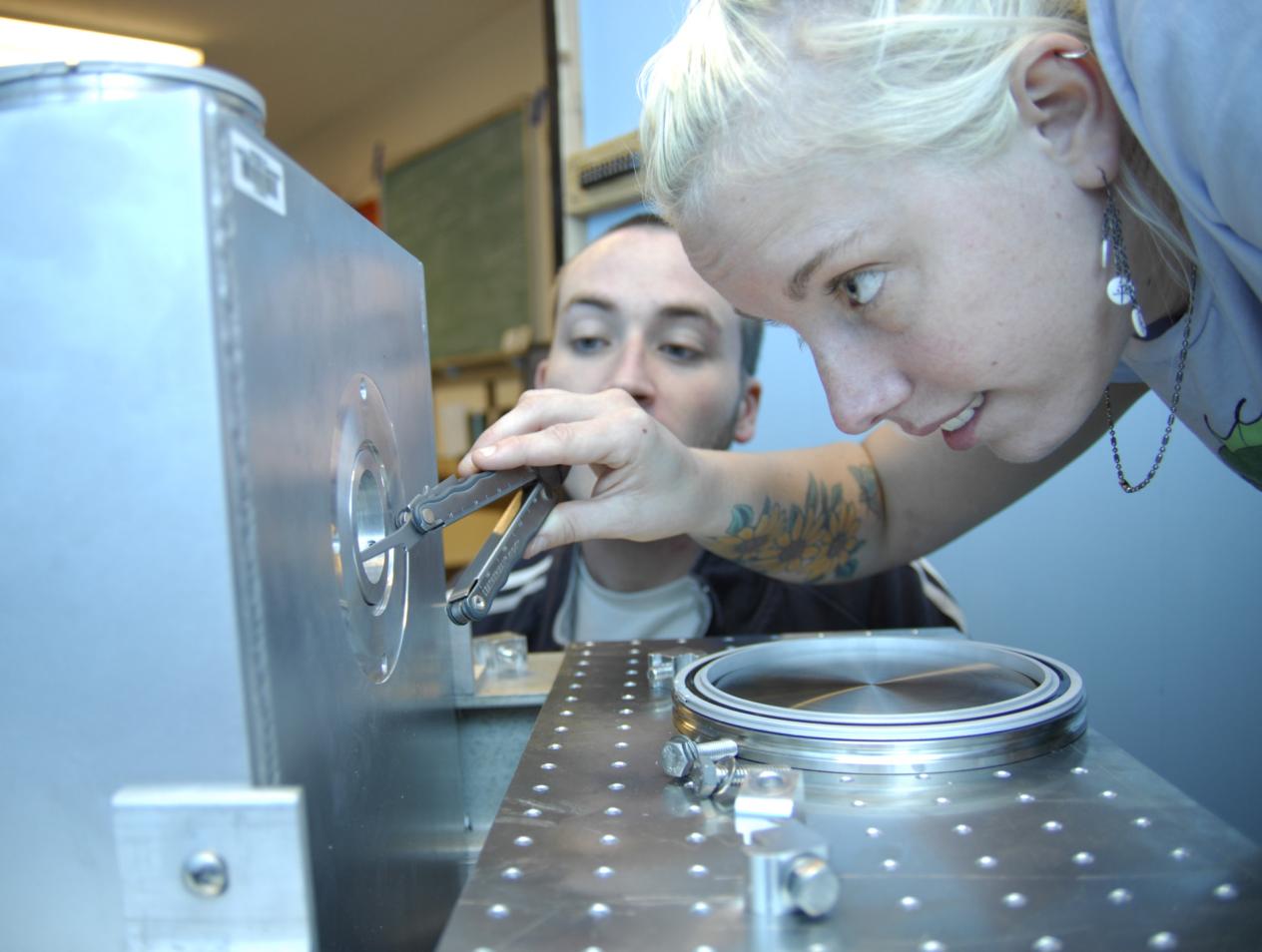Breadcrumb
Physics, B.S.
Hands-on learning and research are at the heart of our program. Small class sizes make it easier to get one-on-one attention from professors who are eager to help. And our graduates are in high demand in this high tech world.
Physics & Astronomy gives you the perspective and problem solving skills needed to better understand our world and universe.
Why this Program
Hands-on Research
You’ll get hands-on use of equipment in our dedicated optics and electronics laboratories, as well as opportunities for original research through our Gravitational Research Laboratory Physical Oceanography opportunities, our off-campus observatory, and you may possibly co-author a scientific paper.
Small Class Sizes
Physics and astronomy are crowded fields at many universities. Our small class sizes mean you’ll always get classes you need and close attention from professors.
Ready for the Next Step
When you're considering graduate study—which is required for many careers in the field—we will guide you based on your strengths and our excellent reputation.

Concentrations
The Bachelor of Science in Physics in physics is designed for those students who expect to enter one of the various fields of research or development in government or in private industry. Students can also move onto graduate studies and teaching at all levels.
Catalog information: Major Requirements for B.S.
Major Academic Plan (MAP):
Bachelor of Science in Physics with a concentration in Astronomy includes three specialized courses for those interested in a career in astronomy or astrophysics and is relevant for those who would like to pursue careers or graduate work in these fields, including the rapidly evolving area of gravitational wave astrophysics.
Catalog information: Major Requirements for the Astronomy Concentration, B.S.
Major Academic Plan (MAP):
Bachelor of Arts in Physical Science is less specialized and more adaptable to studies in various fields, including preparation for teaching at the secondary school level.
Catalog information: Major Requirements for B.A.
Major Academic Plans (MAPs):
Did You Know?
Stars to Rocks, our first-year learning community, gets you connected to professors quickly, as well as a cohort of like-minded students who support each other throughout college.
Starting salaries in the private sector can range on average from around $60,000 for Bachelor’s degree recipients to over $100,000 for those with a Ph.D.
The median wage for Physicists and Astronomers in 2020, according to the Bureau of Labor Statistics, is $129,000.
Undergraduates can join the American Physical Society, the main professional organization for those studying physics and working in the field, for free for their first year.

Careers
Whether your interests lie in the far reaches of the universe or in the subatomic workings of our own world, we have a course of study and the enthusiastic teachers to prepare you for an exciting and fulfilling career.
- Physicist
- Astronomer/Astrophysicist
- Secondary science teacher
- Scientific Programmer
- Physical Oceanographer
- Physical Chemist
- Geophysicist
- Biophysicist
- Medical/radiological technologist
- Telescope operator
- Staff Scientist (Industry, University, or National Laboratory)
- Financial Analyst







